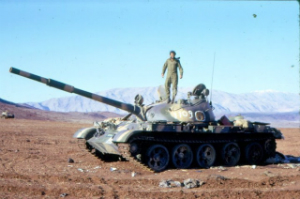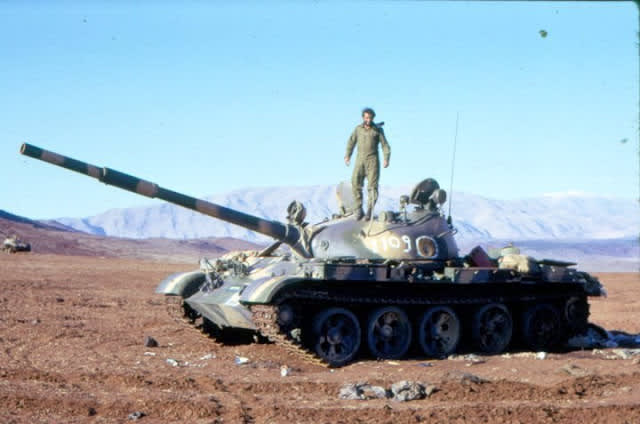This article originally appeared on rabbisblog.brsonline.org.
 When I studied in Yeshiva University there was a young man named Yossi z”l who suffered from a degenerative disease that left him in a wheelchair, immobile and unable to speak. All Yossi could do was move his finger and that is how he communicated. He had a board on his wheelchair with a chart of the alphabet on it. He would painstakingly move his finger to point to a letter, and then another letter until he spelled out a word and patiently continued until his words formed sentences.
When I studied in Yeshiva University there was a young man named Yossi z”l who suffered from a degenerative disease that left him in a wheelchair, immobile and unable to speak. All Yossi could do was move his finger and that is how he communicated. He had a board on his wheelchair with a chart of the alphabet on it. He would painstakingly move his finger to point to a letter, and then another letter until he spelled out a word and patiently continued until his words formed sentences.
After getting married, Yocheved and I went to Israel for two years where I studied in YU’s Gruss Kollel in Yerushalayim. I was pleasantly surprised to learn that Yossi had made Aliyah with his family and was studying there as well. By this time, he was unable to control any muscle in his entire body other than moving his eyes. In order to communicate, instead of Yossi, you had to move your finger over the board and Yossi would look to the side to indicate which letter he wanted to use to form the word that would make the sentence that would communicate his thought. Yossi’s Rebbeim in YU described him as having a brilliant mind. He had so much to offer the world, insight, wisdom, humor and yet we were so limited in our ability to gain from Yossi, simply because he lacked the ability to communicate with ease.
Today, we have technology that would allow Yossi to share his thoughts with others. However, from my relationship with him I learned that without the gift of communication, verbal or otherwise, we are left paralyzed, with so much to share, but an extremely limited ability to influence or impact the world around us. Communication allows mankind to advance and grow, to create and destroy, to build and demolish. Words matter and can even have lethal consequences. Shlomo Ha’Melech, the wisest of all men taught, “Maves v’chaim b’yad lashon, death and life are in fact found in the power of speech.”
I am not telling you anything that we haven’t all been taught since our earliest age. However, somehow despite our knowledge about the power and impact of words, we struggle to be discerning, careful and judicious in our employment of them. This week was a stark reminder of how the choice of words can have dramatic and lasting effects.
Few of us knew the name Donald Sterling before this week, but now he is a household name. He has become the poster child of racism, the symbol of bigotry and image of discrimination. Sterling’s attitude towards black people is actually nothing new. In 2009 he was sued by the coach of the Clippers, the NBA team he owns, for wrongful termination saying that the team’s owner underpaid him and treated him “as a token because of his race,” though the suit was later dropped. In 2006 the Justice Department filed a lawsuit accusing Sterling’s rental company of refusing to lease Beverly Hills apartments to African-Americans. In 2003, the nonprofit Housing Rights Center and a group of tenants filed a lawsuit accusing Sterling of “numerous discriminatory statements and housing practices,”
Sterling’s record towards African Americans didn’t impede him from public recognition and awards. In January 2006, Sterling was inducted into the Southern California Jewish Sports Hall of Fame during a gala dinner at the Milken Jewish Community Center in West Hills. Even more shockingly, he was slated to receive his second NAACP Lifetime Achievement Award at the group’s 100th anniversary celebration next month.
But today, Sterling is considered a villain, reviled and loathed by decent people everywhere. The NBA is fining him $2.5 million and is forcing him to sell his team. What did he do wrong? Was he caught practicing discrimination, bias or racism? No. Amazingly, it wasn’t anything he did, it was entirely what he was caught saying. A tape emerged capturing a racist rant from Sterling. The consequences have been swift and drastic. Amazingly, those consequences were not imposed when he was accused of actually practicing racism, but they came with furor when he used his words and spoke in a vile, intolerable, reprehensible way. Words matter and the wrong choice of them can have grave consequences.
A poor choice of words can be revealing or inflammatory and provocative in dangerous ways. Secretary of State, John Kerry’s use of the word Apartheid in the context of Israel’s future brought on a bipartisan firestorm of criticism this week. His defenders will point out that two former Israeli Prime Ministers have used that word in describing what may result in a failure to make peace. Kerry defended himself aggressively and vehemently citing his record as a Senator on Israel. Many, myself included, were unconvinced. His record on Israel was not under question; it was his choice of one particular word, a word that is viewed as dangerously inflammatory in any context and under any condition, but especially when used in connection to Israel.
My point here is not to make the claim that it is absurd to suggest that Israel is an Apartheid state or heading towards being one, something relatively easy to do. I am simply pointing out a second incident from just this week where someone did not take an action or enact a policy, but was riddled in controversy simply because of the words they chose to use.
Words matter. Words can be lethal, but they can also save lives and even save a country. This week I had the privilege of visiting Emek Ha’Bacha, the Valley of Tears in the North of Israel, together with the incredible Hillel Day School 8th Grade mission to Israel. A little over 40 years ago, Israel was caught by surprise when they were attacked on Yom Kippur day. The IDF was unprepared and some suggest even arrogant after the miraculous sweeping victory in the Six Day War, just a few years earlier.
On the fourth day of the war, Syria began a new attack from a valley in the Golan Heights. The Syrians had 1,500 tanks and the Israelis had 177. The Syrians had 460 artillery and cannons and the Israelis had 44. The Syrians had 36 anti aircraft missile batteries and the Israelis had none. In this particular battle, the Syrians had 500 tanks and the Israelis had 40. The Syrians charged forward seeking access to the plateau that would have allowed them to spread out their forces, take control of the Golan Heights and charge deep into Israel.
At one point, 29-year-old Lt. Col. Avigdor Kahalan, who commanded the IDF’s 77th Armored Battalion, told one of his tanks to take a certain position that would intimidate the Syrians. The driver radioed back that he had no ammunition. Kahalani’s response was, “but they don’t know that.” He instructed the tank to take the position and move around raising dust in a way that would give the impression it was fierce and dangerous.
The battle raged for days and the Syrians were advancing. Kahalani’s men hadn’t eaten or slept in days. They were physically exhausted and their spirits were broken. The Syrians made an aggressive push forward. There was one last opportunity to enter the valley and stem the Syrian advance before it was too late. Kahalani radioed the remaining tanks to join him in a rush towards the enemy, but the men were tired, they were scared and they had all but given up hope not only of protecting the Golan but of Israel’s very future.
Kahalani realized that he was going forward alone and he radioed his weary men the following words: “Just look at the Syrians’ courage as they come up to the positions facing us. I don’t understand what’s happening to us. After all, we are stronger than they. Now, start to move forward…Move!” The courageous men of his battalion described how those words, Kahalani’s short but dramatic charge, literally transformed their spirit and gave them the strength, fearlessnes, and will to join him in his aggressive advance. The battled raged and ultimately Kahalani’s battalion miraculously succeeding in achieving the Syrian retreat.
Following the war, General Rafael Eitan said to the 77th Battalion: “If we had not stopped the Syrians on the Golan Heights, then the State of Israel would have been destroyed…This division saved Israel from defeat, from catastrophe…I want to stress and make it clear to you; you saved the people of Israel. First and foremost, you!”
We went from the movie that told the story and included the actual radio conversations to a lookout over the valley where the battle was fought. As we stood there, just a few days before Yom HaZikaron and Yom Ha’Atzmaut we were in awe of the courageous men and women who founded and defend our beloved and precious State of Israel. We were overwhelmed with gratitude to God for the blessing of returning to our homeland after all of these years.
And we walked away realizing that words truly matter, and finding the right ones at the right moment can make the difference for an entire nation. Words matter, so let’s remember to always choose ours carefully.
The words of this author reflect his/her own opinions and do not necessarily represent the official position of the Orthodox Union.

